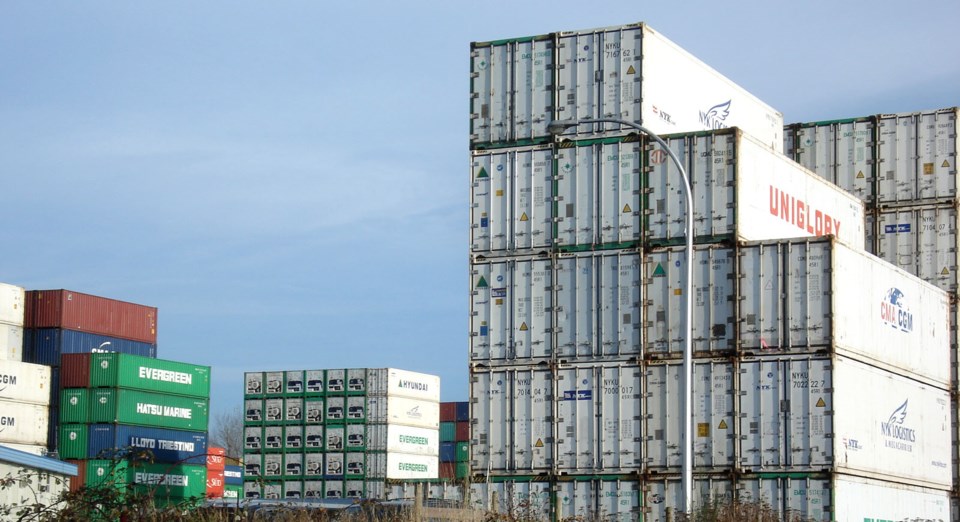Prime farmland in South Delta remains under threat from an industrial real estate consortium.
Independent MLA Vicki Huntington revealed Friday that nine much talked about option-to-purchase agreements for Agricultural Land Reserve properties under speculation have been extended for another year.
"The option-to-purchase extensions come as no surprise," said Huntington. "The developer has drawn out the agreements for another year in the hopes that either the port or the province will hand him keys to steamroll over the Agricultural Land Reserve."
The Delta South MLA noted most of the original options were set to expire Nov. 30, but farm owners and developer Ron Emerson extended all but two. The total acreage of the optioned land has been reduced to 591 acres from 739, she said.
Huntington's public revelation last year about the land near Deltaport Way made headlines and intensified concerns about the future of farmland in Delta, especially with port expansion, a provincial ALR review and the South Fraser Perimeter Road.
Emerson Real Estate Group, representing the industrial consortium, had an industrial proposal developed with CN, CP, Western Stevedoring and international port consultant Carrix. It featured a 12,000-foot intermodal rail yard and warehouses.
Emerson did not return a call by the Optimist this week.
In a previous TV interview Emerson said the land is in the right place to accommodate port expansion and therefore is appropriate for exclusion from the ALR.
Huntington previously said Emerson told her that government ministers were supportive of the proposal
Then agriculture minister Don McRae tried to distance the government from the controversy, issuing a statement that the optioning deal was a private business transaction between a developer and farmers with no provincial involvement.
Now that most of those options have been extended, Huntington is reiterating concerns that both the province and Port Metro Vancouver may open the door to development on farmland.
She said as an agent of the federal government, PMV is immune from provincial law including the Agricultural Land Commission Act.
Huntington also pointed that further proof ALR land was under threat from speculators can be seen in a recently leaked provincial cabinet document that suggested dismantling the Agricultural Land Commission.
In an interview last year, then Delta Farmers' Institute president John Savage said he was also opposed to the loss of any more prime farmland in the region.
"I've met with the proponent and I've made it very clear to him that the land should remain farming and not be developed in any way. It should stay in agriculture because you just can't keep taking the farmland base away," said Savage.
Huntington was criticized last year by several on Delta council, who claimed they had been aware of the options for a couple of years and that the MLA was trying to create controversy out of old news.
Coun. Robert Campbell said the options were "worthless" and the MLA was "stirring up a hornet's nest over a big pile of nothing" because the lands were not in danger of being pulled from the ALR.
Council, however, agreed to send a letter to the provincial government reiterating Delta's position that farmland should be preserved.
In its fall 2013 industrial overview report, Avison Young notes Metro Vancouver's industrial land shortage remains top of mind for industry, the port authority and local and provincial governments.
"With Metro Vancouver estimates placing the region's remaining supply of industrial land at 10 to 12 years based on current consumption patterns, and industry forecasts predicting ongoing annual increases in container traffic and cargo shipments, a compromise solution is increasingly likely to be legislated rather than mediated," the report states.



